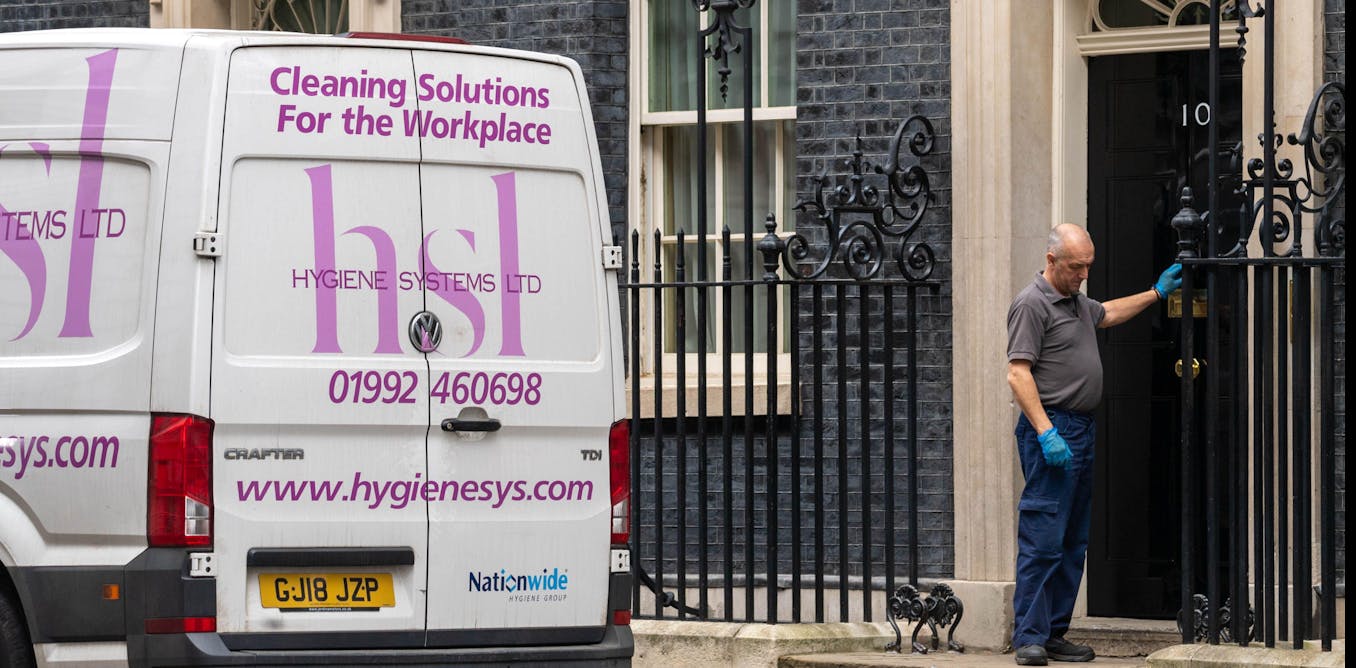Corruption: how the UK compares to other countries
The UK actually rates very well when compared to other nations – depending on what you include in your data.

Corruption allegations have been flowing freely in the UK of late. To cherry-pick just some, an MP has resigned over his apparent conflicts of interest, a former attorney general has had his external business practices thrust into the public spotlight, the prime minister has been dealing with allegations about who funded renovations to his flat, and plenty of questions have been raised about the distribution of public sector contracts to help fight COVID-19. This list is far from exhaustive.
The apparent deluge of allegations might lead one to believe that the country is going to a corruption-induced hell in a handcart. That could indeed be true. But it certainly doesn’t appear to be the case if the UK is compared with other countries around the world.
The most well-known indicator of how much corruption exists remains Transparency International’s Corruption Perceptions Index (CPI). The CPI is certainly not without its critics (see here and here), but it’s still generally regarded as a decent place to start.
In the most recent iteration of the CPI, published in January 2021, perceptions of corruption across 180 countries were evaluated. New Zealand and Denmark came out best, with other Nordic countries also doing very well. States with dysfunctional governments or those in the middle of or recovering from conflict did much less well. Somalia and South Sudan came out worst.
The UK came out 11th with a score of 77 out of 100. The Danes and New Zealanders were 11 points ahead of that, scoring 88 each. That’s pretty much par for the course. The UK was on 77 in 2019, albeit one place lower in the index in 12th. Indeed, it’s actually an improvement on where the UK was a decade or so ago. In 2012, for example, the UK was 17th with a score of 74.
Much-criticised though the CPI is, it’s clearly not putting the UK in a place that stands out as being anomalous. The fourth edition of the Global Corruption Index, for example, has the UK 8th in its 2021 table, an improvement of three places on where it was in 2020. In the 2021 Freedom from Corruption Index the UK came in 13th (out of 181), scoring 87 out of 100 whilst it was 10th in the most recent (2019) Index of Public Integrity. The World Bank also has the UK doing very well in terms of Control of Corruption, placing it very near the top when it comes to quality of governance.
Delayed reaction?
So, all sweetness and light? Hardly. For one thing, there is always a lag between incidences of alleged corruption taking place and that corruption filtering through into these tables. The US, for example, is only now seeing dips in its performance, nearly five years after Donald Trump came to power and put himself at the centre of myriad corruption-related concerns. It may well be that over next few years the UK starts to slide.
Furthermore, it’s important to be clear that one of the real weaknesses of international corruption indices is that they generally look at public sector corruption. That means a focus on the specific behaviours of elected or appointed officials (such as civil servants).
There is less emphasis on the contributions that private sector actors might make. If the public sector is the key term of reference, the UK does well. Even if some of the behaviour of the current crop of politicians is decidedly questionable, the UK’s civil service does remain widely respected, and norms on transparency and integrity are stronger than in many places. However, there is much about the UK’s position that remains more problematic than these indices reveal.
Many of the most publicly visible indiscretions may have little to do with underlying drivers of corrupt practice. Allegations about a prime minister inappropriately funding his flat renovations, for example, make big news and get remembered by people on the street, but in the great scheme of corruption scandals they are relatively small fry. It’s not that these scandals don’t matter, it’s more that they can crowd out corruption scandals that are potentially more serious.
That is certainly true if one compares Boris Johnson’s flat-renovating episode to the scale of laundered money flowing through the City of London. The number of zeros needed to quantify the scale of that particular problem would be considerable.
Yet London’s industry of “corruption enablers” doesn’t play much of a role when levels of corruption are discussed. If it did, the UK would certainly not be occupying the high places in these indices that it does now.
Other countries may have more obvious corruption problems. And these problems are often easier to read out of international corruption indices. But that is absolutely not a recipe for any complacency in the UK.
Just because corruption is very difficult to measure doesn’t mean that it can’t be felt and that high profile scandals don’t have an impact. Many practices that are legal or (just about) within the rules but facilitate corruption don’t obviously filter into these league tables.
They are nonetheless real and, indeed, they have real-world impacts. The politicians implicated in these scandals neglect the impact that they can have at their peril.![]()
Daniel Hough does not work for, consult, own shares in or receive funding from any company or organization that would benefit from this article, and has disclosed no relevant affiliations beyond their academic appointment.
What's Your Reaction?






























































































